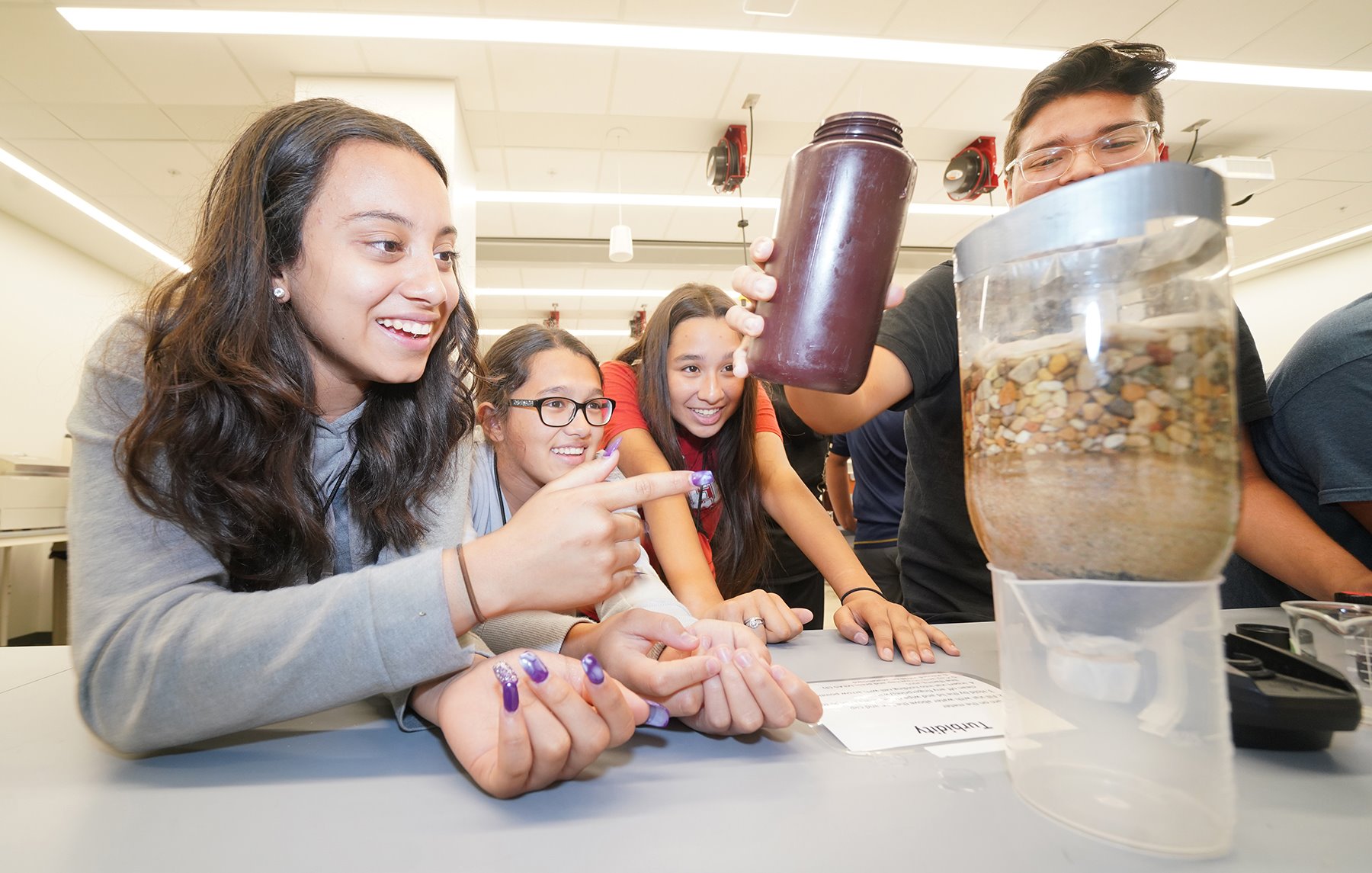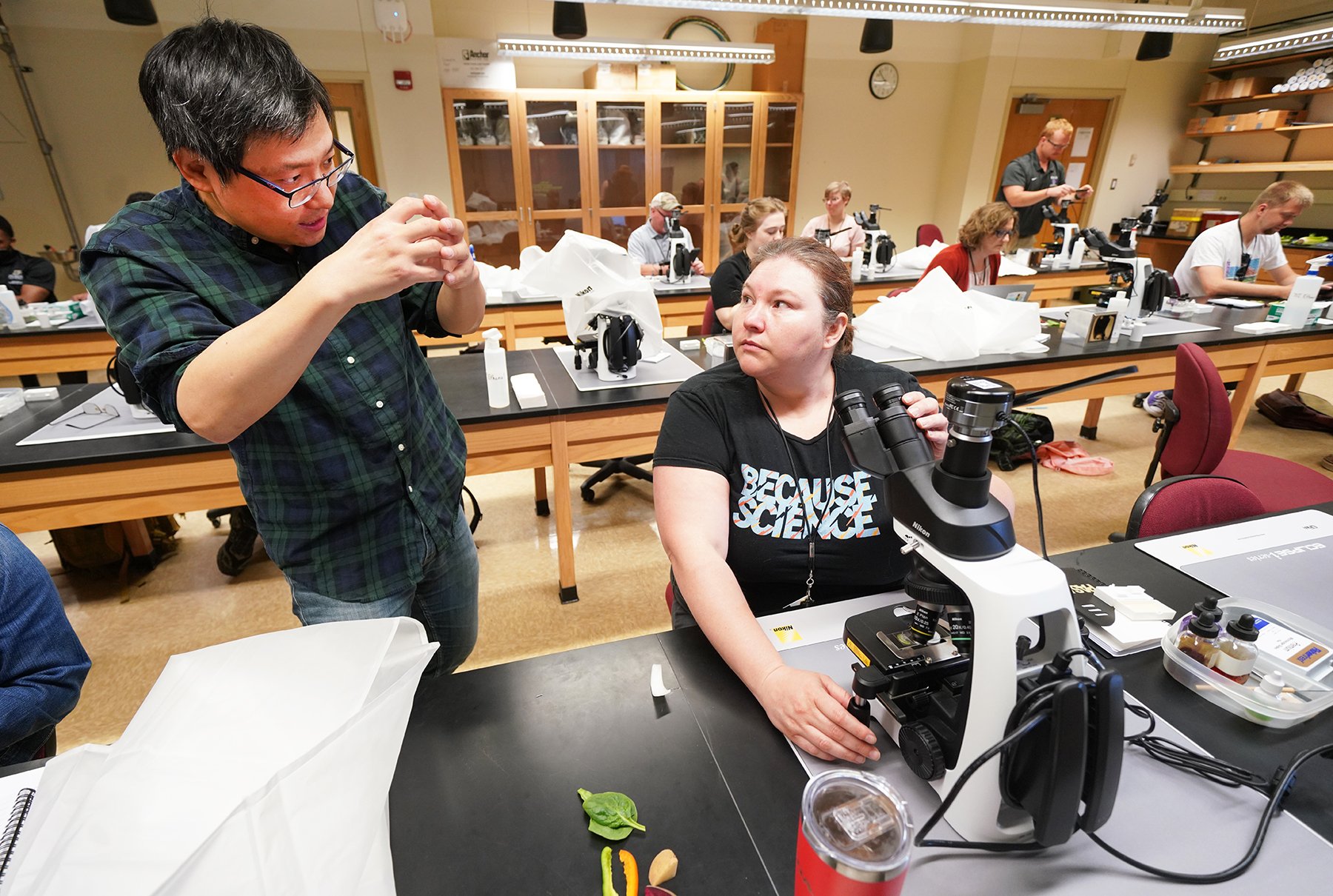After two years of increasing growth and development, the Office of Multicultural Programs’ Cargill-Purdue Agribusiness Science Academy (C-PASA) summer program received the 2023 Inspiring Programs in STEM Award presented by INSIGHT Into Diversity magazine.
INSIGHT Into Diversity selected award winners based on efforts to inspire and encourage a new generation of young people to consider careers in STEM through mentoring, teaching, research and successful programs and initiatives.
Zac Brown, assistant director for student recruitment and retention in the Office of Multicultural Programs, said since Cargill came on board as a financial sponsor beginning with the 2022 camps, the program has been free for all attendees and opportunities have been greatly enhanced.
In addition to industry tours, department activities within the College of Agriculture and Purdue field site visits, C-PASA has been able to offer college credits to its high school camp attendees.
“Cargill’s partnership has allowed this camp to grow into a nationally recognized program, modeling inclusive excellence and broadly increasing participation in STEM and agriculture for students from underrepresented backgrounds,” Brown said. “Making this a free camp where students are able to receive college credit and experience a traditional college setting has a huge impact on these students’ lives.”
 Participants in the Cargill-Purdue Agricultural Science Academy learning about water turbidity and ground water filtration using a plastic bottle, tap water and layers of gravel.
Participants in the Cargill-Purdue Agricultural Science Academy learning about water turbidity and ground water filtration using a plastic bottle, tap water and layers of gravel. C-PASA is divided into three tiers of participants: middle school students, high school students and a professional workshop. During the last two years, C-PASA expanded its professional workshop for K-12 teachers to include industry professionals and community organizers.
Bernie Engel, the Glenn W. Sample Dean of Agriculture, said the C-PASA program continues to make a positive impact in engaging the number college graduates interested in going in the fast-paced and evolving agricultural industry.
“Growing the pool of highly qualified early career agricultural professionals is critical,” Engel said. “C-PASA introduces all the many possibilities within a career in agriculture to students considering their next educational steps.”
 Purdue University professor of botany and plant pathology, Yun Zhou (left) answers questions in a lab for high school teachers and professionals. This session was one of many, during the 3 day C-PASA Professional Workshop, to help participants take back teaching tools to their programs.
Purdue University professor of botany and plant pathology, Yun Zhou (left) answers questions in a lab for high school teachers and professionals. This session was one of many, during the 3 day C-PASA Professional Workshop, to help participants take back teaching tools to their programs. “We know that many STEM programs are not always recognized for their success, dedication and mentorship for underrepresented students,” said Lenore Pearlstein, owner and publisher of INSIGHT Into Diversity magazine. “We want to honor the schools and organizations that have created programs that inspire and encourage young people who may currently be in or are interested in a future career in STEM. We are proud to honor these programs as role models to other institutions of higher education and beyond.”
Looking to the future for the C-PASA program, Brown said they want to expand opportunities for middle school students and increase their student enrollment. With outreach opportunities planned throughout the calendar year, Brown said their hope is to spread the word about all C-PASA has to offer, and to continue introducing prospective students to Purdue Agriculture’s academic programs.





